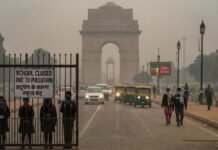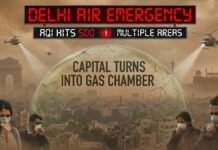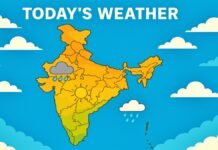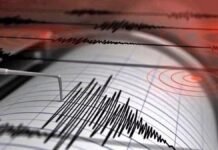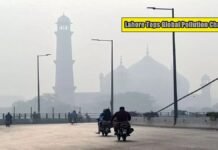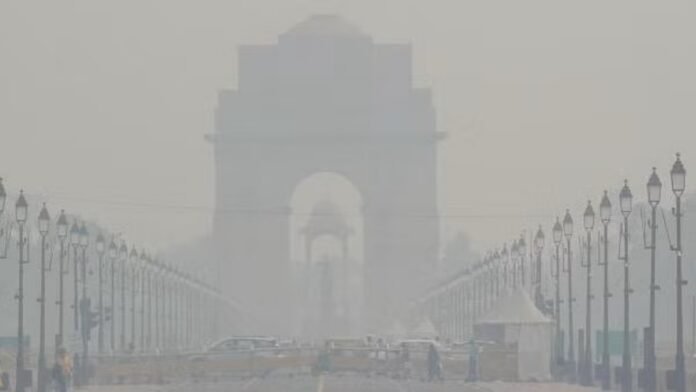
New Delhi: Delhi’s air quality plummeted into the ‘Severe Plus’ category on Monday, with the 24-hour average Air Quality Index (AQI) surging to an alarming 481. This unprecedented level of pollution has triggered the implementation of Stage IV of the Graded Response Action Plan (GRAP), mandating stringent anti-pollution measures across the National Capital Region (NCR).
Alarming AQI Levels Across Delhi
Data from the Central Pollution Control Board (CPCB) paints a grim picture. The AQI in:
- Dwarka reached 499,
- Ashok Vihar and Bawana recorded 495,
- Najafgarh stood at 493,
- Alipur logged 475,
- Burari recorded 461.
These levels fall within the ‘Severe Plus’ category, indicating hazardous air conditions that can severely affect even healthy individuals and pose serious risks to those with pre-existing respiratory or heart conditions.
Impact on Schools, Offices, and Transport
To curb exposure to toxic air, the government has implemented sweeping changes:
- Schools: Classes have moved online for all grades except 10 to 12.
- Workplaces: Offices in the NCR are operating at 50% capacity, with the remaining employees working remotely.
- Transport Disruptions: Dense fog and smog have disrupted air and rail traffic, with the Indian Meteorological Department issuing an Orange alert for visibility issues.
GRAP Stage IV: Toughest Anti-Pollution Measures
Under GRAP Stage IV, the strictest measures have been rolled out to combat the pollution crisis:
- No Entry for Trucks: Only essential trucks or those running on clean fuels like CNG, LNG, or BS-VI diesel are allowed into the city.
- Halt on Construction: All construction and demolition activities, including major public infrastructure projects like highways and pipelines, have been suspended.
- Potential Odd-Even Rule: The government may implement odd-even vehicle restrictions to reduce vehicular emissions.
Why Is Delhi’s Air So Toxic?
The worsening air quality can be attributed to a combination of low wind speed, rising vehicular emissions, stubble burning in neighboring states, and adverse meteorological conditions that trap pollutants.
What’s Next?
The government is monitoring the situation closely, but experts warn that immediate action is critical to prevent a prolonged public health emergency. Authorities are urging citizens to:
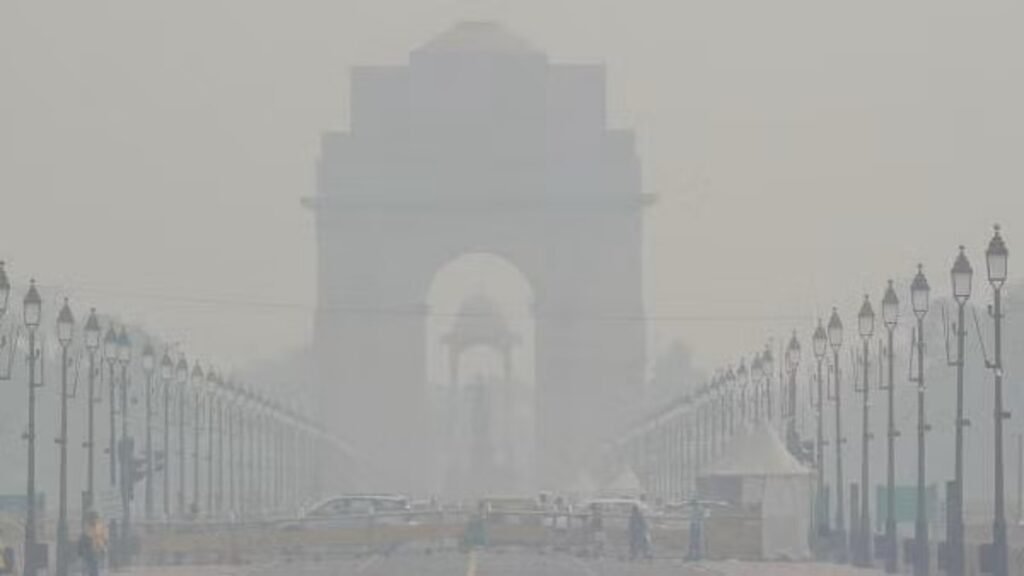
- Minimize outdoor activities,
- Use N95 masks when stepping out,
- Prefer carpooling or public transport,
- Follow official advisories.
As Delhi grapples with hazardous air, the onus is on both the government and citizens to adopt sustainable practices and tackle the deep-rooted causes of this annual crisis.



































